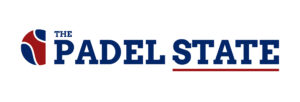When it comes to all things cultural, Brooklyn is undoubtedly America’s “capital of cool.”
Be it the splashiest new culinary trends, envelope-pushing art galleries, or next breakout indie bands, this once-overlooked New York City borough seemingly has it all. Now it’s also home to the world’s fastest growing sport, in the form of not just one, but three, ultra-luxe padel clubs under the Padel Haus brand.

From Mexico With Love
With the exception of a few small pockets of padel enthusiasts in places like Texas and South Florida, 10 years ago most people in the U.S. had never even heard of the game, let alone considered playing it.
But one person who not only had played it but also understood its explosive growth potential was Santiago Gomez, a former UBS investment banker and co-founder of the award-winning Manhattan restaurants Cosme and Alta.
Having grown up playing padel in his native Mexico, Gomez always loved the game. But it wasn’t until a trip to padel-crazed Miami during the pandemic that he really got the idea to open a club that could boldly introduce one of the world’s biggest cities to one of the world’s fastest-growing sports.
If You Build It… Will They Come?
The first Padel Haus opened in the uber-trendy Williamsburg neighborhood of Brooklyn in July 2022 with four indoor courts, a juice bar, large social lounge, and fully stocked pro shop. In keeping with its Nordic-cool modern vibe, it also features sleek locker rooms complete with rain showers, steam rooms, and Malin + Goetz grooming products – not to mention, a killer logo.
While it might seem like a big risk to bring a relatively unknown sport to a metropolitan area with an almost endless amount of competing diversions and sky-high real estate prices, Gomez had little doubt that if he could just get enough people to play once, he’d have a monster success on his hands.
Gomez reflects, “It was risky – and it’s still risky – to bet on new padel projects in the US. It’s day zero for the sport here and anything could happen, but based on other countries’ experience, it has all the ingredients to succeed.” He adds, “Padel has a 92% return rate – everybody who enters a court usually returns.”
Padel Haus initially attracted ex-pats from nations like Spain, Argentina, and Sweden, who desperately missed playing the sport they’d grown up loving. Then came a second wave of curious local tennis and squash players who wanted to try out this intriguing new hybrid.
Before long, word of mouth — and platforms like Facebook, Instagram, YouTube, and TikTok — ignited a third wave of those eager to try the game out and use it as an alternative social venue by having a drink in the club’s plush bar after playing. Then came all the media attention.
Fast forward 10 months and over 7,000 people had booked a court and there was a lengthy waiting list to book at peak times. The club actually managed to break even in its first quarter and now turns a profit – and all this from a base of absolute zero padel activity in the city just a year prior.
Never Change a Winning Game
Given the immense success of Padel Haus’ first Williamsburg location, it was no surprise that Gomez soon announced two more club openings in Brooklyn — yet according to him, this was always the plan.
In fact, he says: “When we launched Padel Haus in Williamsburg, the ambition was to grow the company to become the market-leading padel operator in the U.S. with further sites in New York and across the Northeast.”
The first of these two locations was a seasonal outdoor facility in Domino Park, which is just a short, one minute walk from the original Williamsburg location. The Domino Park expansion included three outdoor courts, a “Juice Haus” juice stand, pro shop, and a striking outdoor lounge area with a jaw-dropping view of the Williamsburg Bridge and lower Manhattan skyline.
Next came another indoor facility about a 15-minute drive away in the DUMBO neighborhood. Much like the original Williamsburg location, this one features four indoor courts (spread across 24,000 square feet), a “Juice Haus” juice bar, pro shop, and premium locker rooms with rain showers. But two things that make the DUMBO club stand out in a big way are its stunning outdoor terrace and lob-friendly 30-foot ceilings (as opposed to 21-feet in the original Williamsburg location).

All Padel Haus locations offer both pay-to-play and membership-based pricing. Like most things in New York, it’s not cheap. “We have premium pricing but we offer a premium product,” states Gomez. “People in New York are willing to pay to get that premium experience. It’s a very nice place to hang out.”
Padel’s next wave –– the pickleball set?
One person who recently got to experience the Padel Haus vibe is Neil Thomson, co-founder of the retro-cool “all-racket-sports” apparel, equipment, and events company Short Court, which is looking to make a major splash in the padel market after establishing themselves as a leading upscale-chic pickleball brand in the U.S. and beyond.
Thomson reports, “Padel Haus is a total gem. As a walk-in guest I was grateful to meet Santiago Gomez. He is the real deal and totally passionate about his sport. The Domino Park courts are superb and have great East River views. I can’t wait to get back to Padel Haus, and if I lived anywhere in the five boroughs of NYC, I would certainly join as a member.”
Of the sport in general, Thomson says, “Padel is an amazing combination of fitness, competition, and pure fun! I love the art and geometry of playing off the glass walls. It is absolutely thrilling to play and we’re excited to enter the padel equipment and accessories space.”
While it remains to be seen how many of the millions of U.S. pickleball addicts will eventually migrate — or even just fully graduate — to padel, Gomez sees a huge opportunity to bring the hottest new trend in America’s hippest hood to the rest of the country.
His plans are admittedly ambitious. Within the next three years, he wants to open more clubs in Philadelphia, Washington DC, Boston, and Chicago. Longer term, he’s targeting the already booming West Coast, South, and Northwest.
“Our courts are full now and I’m excited to see whether we can do the same elsewhere,” says the padel pioneer.













